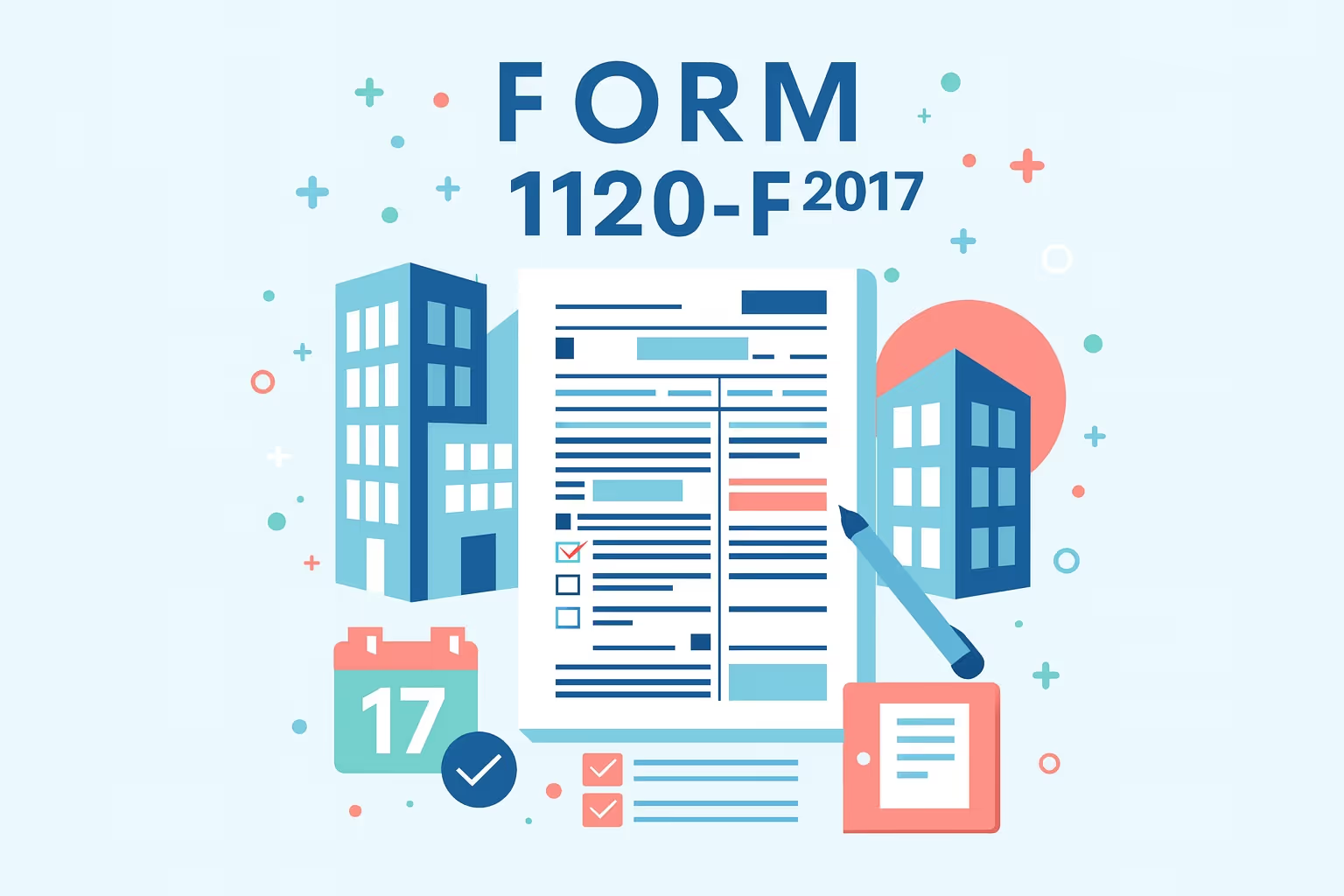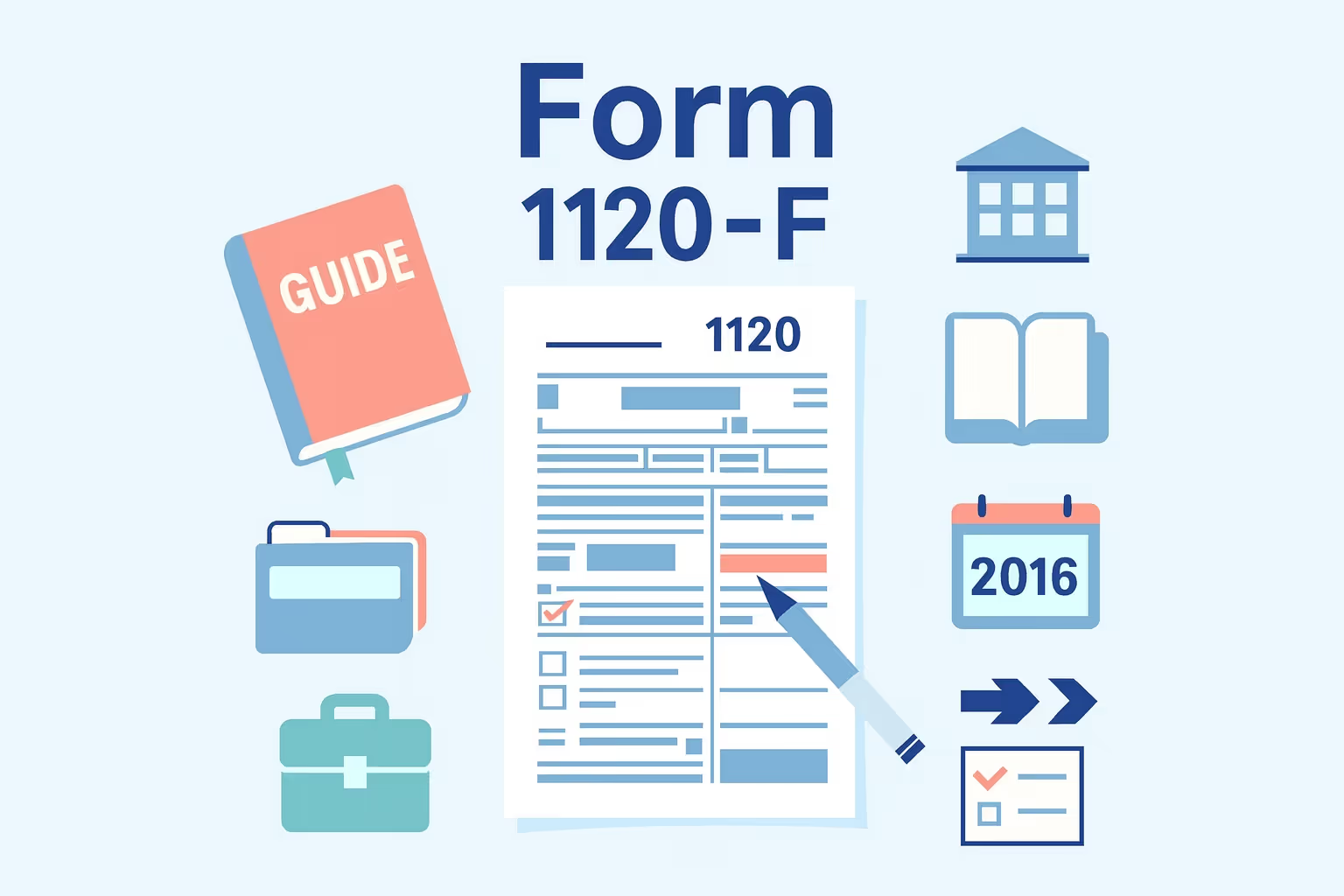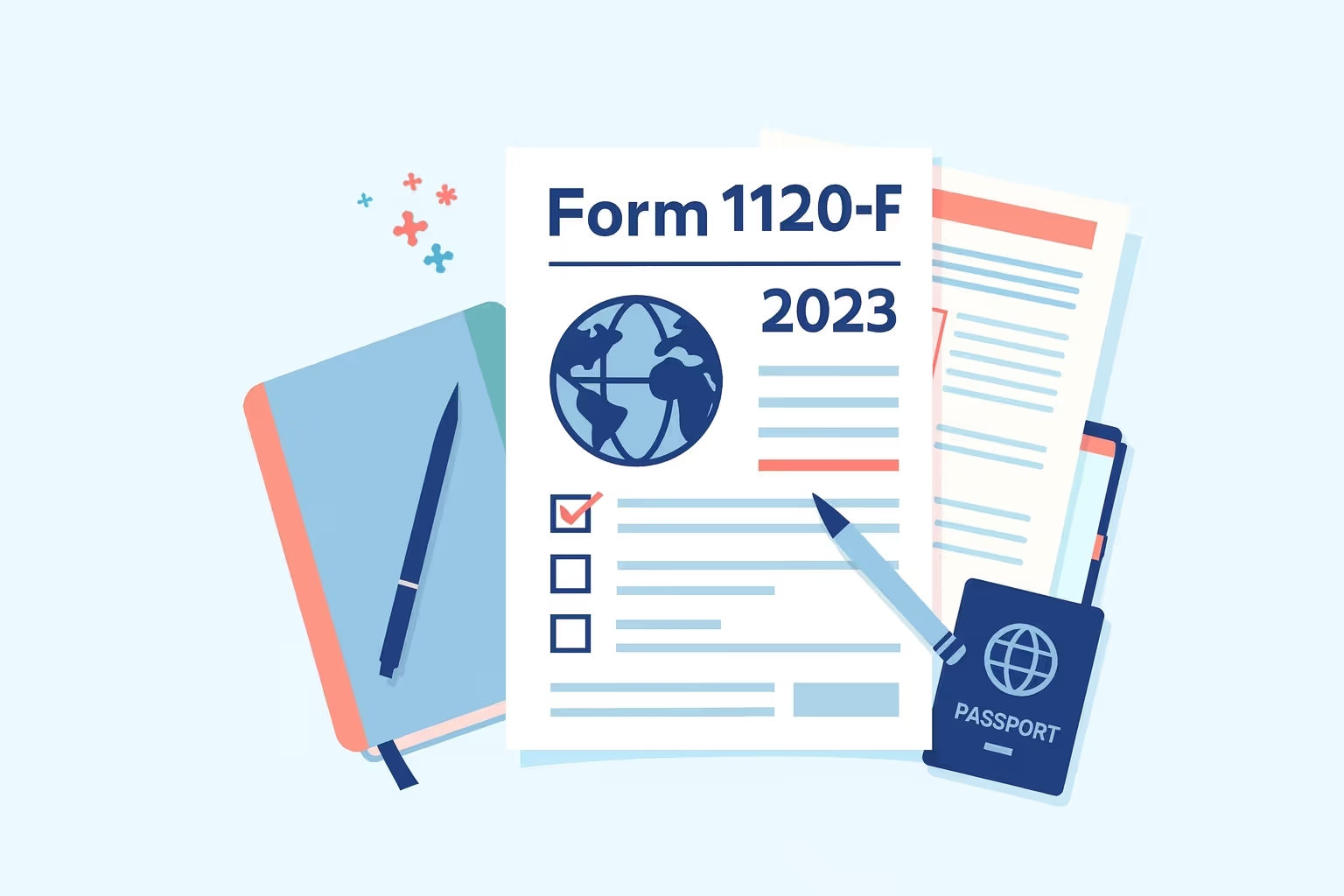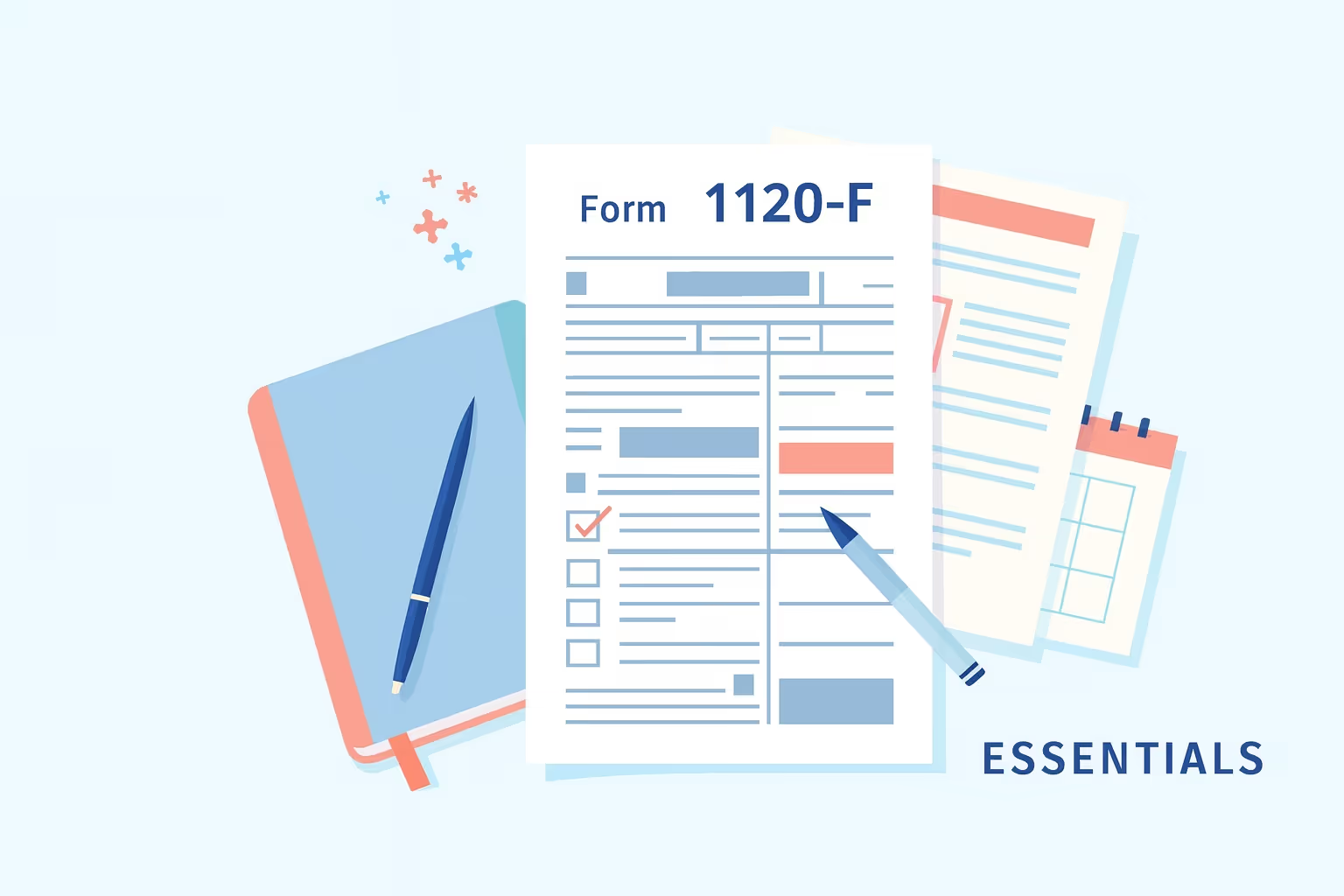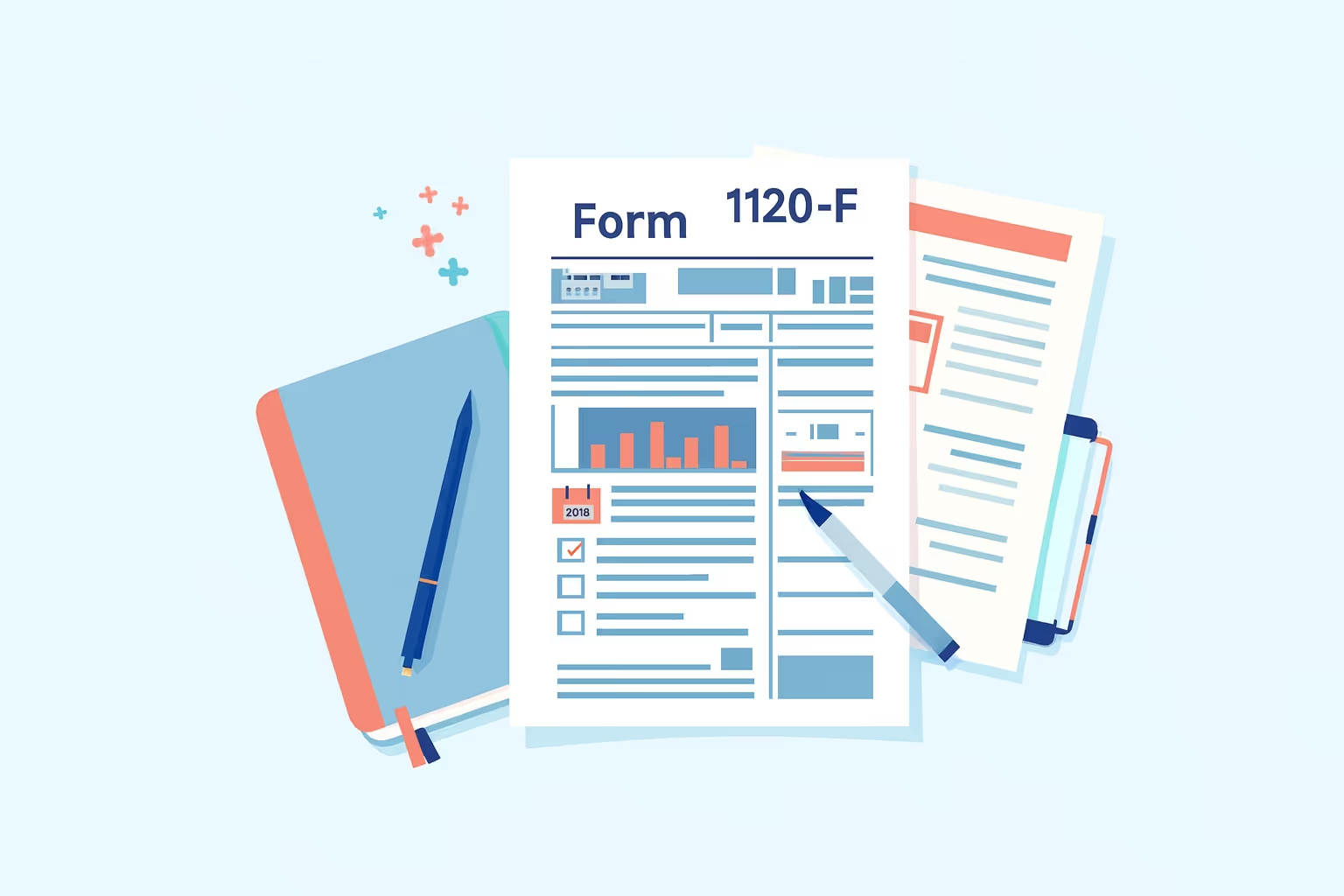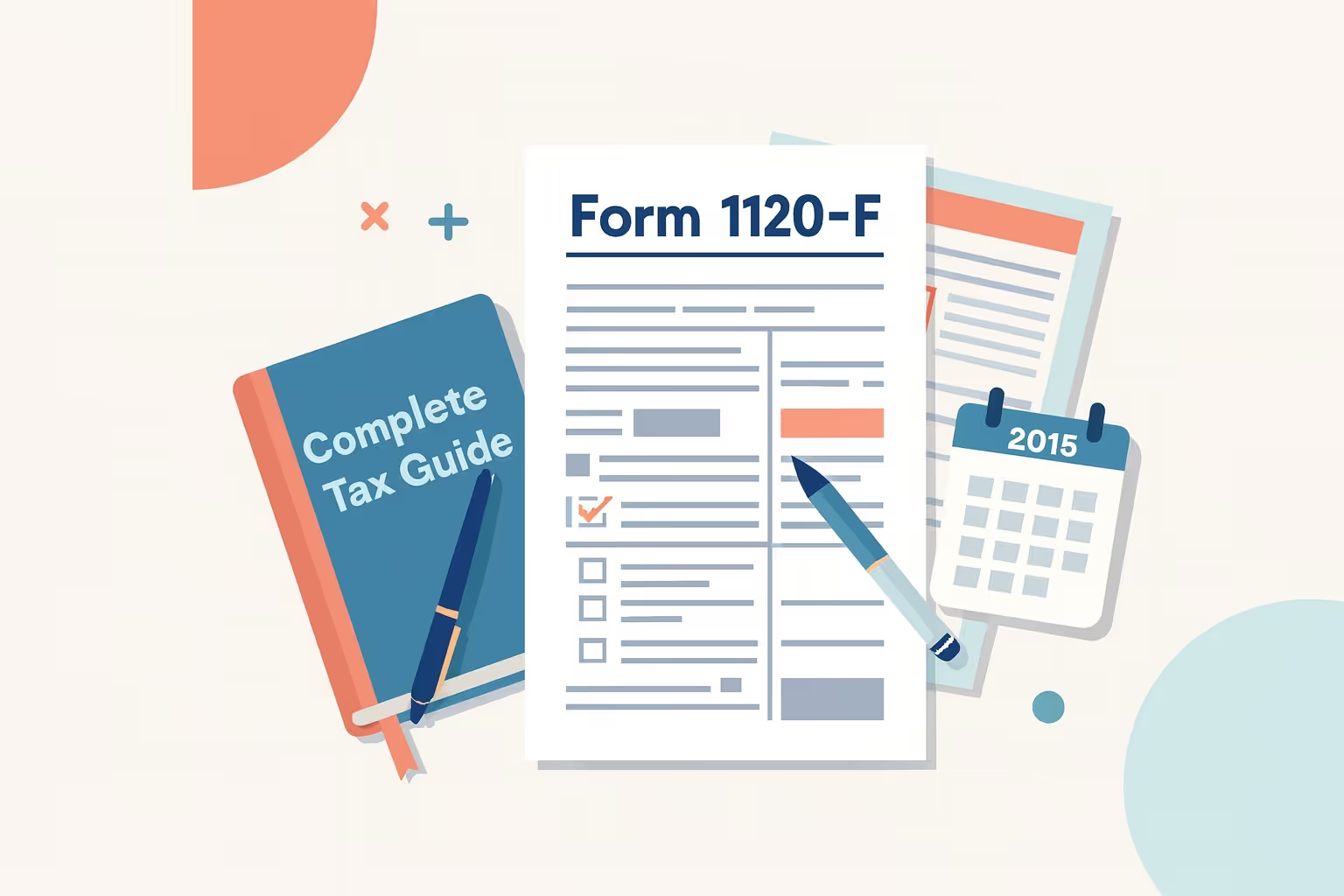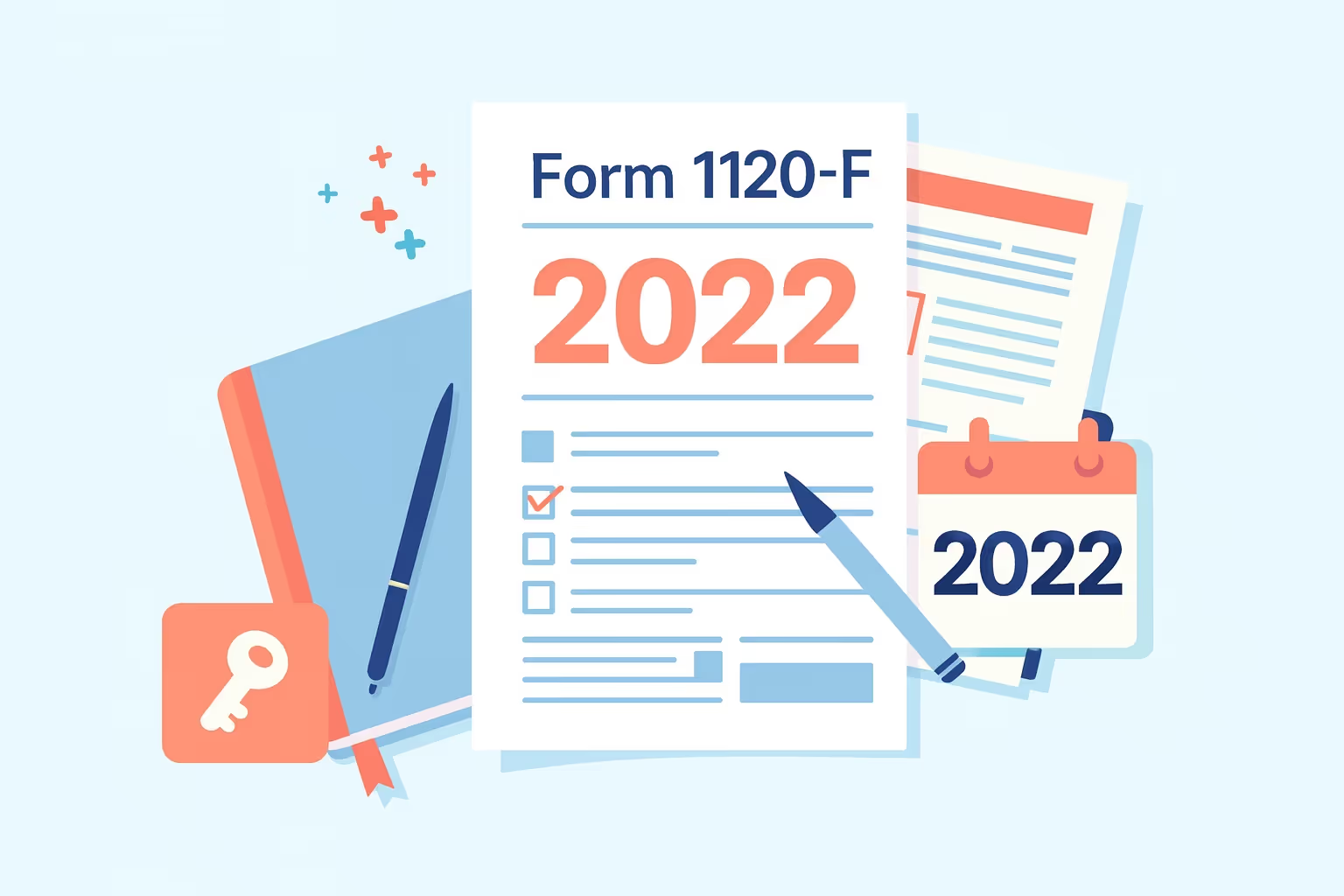
What IRS Form 1120-F (2021) Is For
IRS Form 1120-F (2021) serves as the official income tax return for foreign corporations that earn effectively connected income through operations in the United States. It enables corporations to report income, gains, deductions, and credits to determine federal income tax liability. The form ensures compliance with U.S. tax law and provides a mechanism to apply relevant income tax treaties that help prevent double taxation.
Foreign corporations operating across jurisdictions use Form 1120-F to document their business activities, claim deductions, and fulfill their required filing obligations. The return also applies when a corporation has U.S.-source income subject to withholding tax or holds a permanent establishment within the country. Filing promotes accurate reporting, transparency, and fair tax compliance in accordance with international tax regulations.
Understand which business income tax forms you need to file
When You’d Use IRS Form 1120-F (2021)
Foreign corporations file IRS Form 1120-F 2021 when they earn effectively connected income from trade or business activities in the United States. The filing ensures proper income tax reporting under U.S. tax law and helps corporations meet federal tax obligations. It also determines when income, deductions, and credits must be disclosed for compliance and refund eligibility.
Foreign Corporations Operating in the United States
Corporations use Form 1120-F when operations, assets, or transactions generate taxable U.S.-source income. Filing establishes accurate income tax liability and compliance with income tax treaties. It also applies when a foreign corporation files due to withholding tax or a permanent establishment.
Late or Amended Filings
Late or amended returns help correct reporting errors and preserve eligibility to claim deductions. Filing within 18 months ensures treaty-based tax benefits remain valid and prevents minimum penalty assessments.
Cross-Border Tax Compliance
Form 1120-F promotes transparency between foreign corporations and the IRS. It ensures that every business meets U.S. tax obligations, maintains accurate documentation, and reports income consistently across all jurisdictions.
Key Rules or Details for 2021
Foreign corporations filing IRS Form 1120-F 2021 must comply with key income tax rules under U.S. tax law. These requirements help determine income tax liability, ensure accurate reporting, and protect eligibility for deductions, credits, and treaty-based tax benefits during the 2021 tax year.
- Corporate Tax Rate (21%): This rate applies to effectively connected income earned from U.S. business operations.
- Minimum Penalty ($435): This penalty is charged when a return is filed more than 60 days after the due date.
- EIN Requirement: Every foreign corporation that files must have an Employer Identification Number for tax purposes..
- Form 8833 Disclosure: This form is required when claiming income tax treaty benefits to avoid penalties.
- Filing Timeline (18 Months): Timely filing helps preserve the right to claim deductions and maintain tax compliance.
Step-by-Step Filing Guide
Filing IRS Form 1120-F 2021 requires accuracy, organization, and awareness of key compliance steps. Each stage ensures that foreign corporations report effectively connected income and determine their correct income tax liability under U.S. tax law. Following this structured process promotes efficiency and transparency during tax filing.
- Step 1: Gather and Verify Records
You should collect financial statements, prior filings, and supporting documents for all U.S. operations. You must confirm that the Employer Identification Number and tax year match IRS records. - Step 2: Prepare the Correct Form
You should download the 2021 version of Form 1120-F from IRS.gov. You must report income, deductions, credits, and treaty-based tax benefits accurately. - Step 3: Attach Required Documents
You should include Form 8833, schedules H, I, or S, and proof of withholding tax paid. You must review all entries to ensure full tax compliance. - Step 4: File and Retain Copies
File electronically using e-file or mail to the IRS Ogden, Utah Service Center. Keep copies of all submissions and receipts for corporate tax records. For help managing Utah state tax payment plans, consult official resources.
Common Mistakes and How to Avoid Them
Filing IRS Form 1120-F 2021 involves complex reporting requirements that often lead to avoidable filing mistakes. Foreign corporations must ensure accuracy in every section to maintain eligibility for deductions, treaty benefits, and complete tax compliance. Understanding common filing issues helps improve accuracy and reduce delays in processing.
- Incomplete or Incorrect EIN: Many corporations enter the wrong Employer Identification Number, causing delays. Verify that the EIN matches IRS records before filing.
- Missing the Protective Return Box: Some corporations skip this box when ECI status is uncertain, resulting in lost deductions. Always check it to preserve eligibility.
- Omitting Form 8833: Corporations forget to attach Form 8833 when claiming treaty benefits, which can cause penalties. Always include it to stay compliant.
- Combining ECI and Non-ECI Income: Some corporations report both types of income together, which can lead to tax errors. Report them separately to meet tax law standards.
- Late or Incorrect Tax Year Filing: Filing the wrong form or missing the due date can result in rejection. Always use the 2021 version of Form 1120-F for accuracy.
Avoiding these mistakes supports accurate filing, prevents delays, and reinforces consistent compliance for foreign corporations operating under U.S. tax regulations.
What Happens After You File IRS Form 1120-F (2021)
After submitting IRS Form 1120-F for 2021, the IRS reviews the return for completeness, accuracy of income, and supporting documentation. The review process may take several months for foreign corporations due to additional verification of effectively connected income and treaty-based claims. Corporations receive notices confirming acceptance, balance due, or refund adjustments.
If tax is owed, businesses can request an installment agreement using Form 9465 to manage payments efficiently. Interest continues to accrue until the balance is paid in full under U.S. tax law. Corporations that disagree with IRS adjustments may appeal through the Independent Office of Appeals within 30 days of notice.
Maintaining detailed records of filings, correspondence, and payments ensures compliance with federal regulations. These practices reinforce accurate reporting, improve audit readiness, and demonstrate corporate responsibility across multiple tax jurisdictions.
Frequently Asked Questions
Who must file IRS Form 1120-F 2021?
Foreign corporations operating in the United States must file IRS Form 1120-F 2021 if they earn effectively connected income through trade or business activities. Filing ensures compliance with U.S. tax law and accurate calculation of income tax liability.
What is effectively connected income?
Effectively connected income includes earnings from U.S. assets, services, or operations that are subject to U.S. tax. Corporations must report this income under tax treaties to maintain transparency and claim deductions or credits.
When is the due date for filing?
The income tax return is due on the 15th day of the fourth month following the end of the tax year. Timely tax filing prevents the minimum penalty and preserves eligibility for treaty-based tax benefits.
Can a corporation file an amended return?
A corporation may file an amended return to correct prior errors or add missing deductions. Filing accurately maintains tax compliance and supports eligibility for refunds.
What supporting documents are required?
Corporations must include Form 8833, proof of withholding tax paid, and income schedules to support the accuracy of their income tax return. These supporting documents help confirm deductions, credits, and overall compliance with U.S. tax regulations.
For a detailed breakdown of filing requirements, eligibility rules, and step-by-step instructions, see our Form 1120-F 2020 Instructions: Filing Guide for Corporations.




















